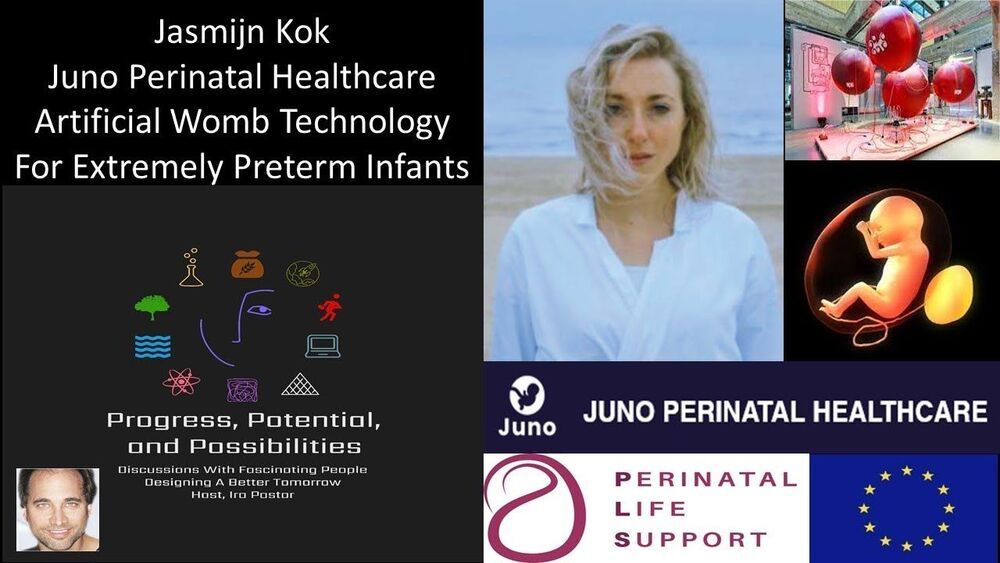Artificial womb technology for extremely preterm infants — jasmijn kok, juno perinatal healthcare.
Every year, 800000 babies are born extremely preterm (defined as less than 28 weeks of age) worldwide. These infants are usually transferred to an air-based neonatal intensive care unit to support their heart and lung development. Exposure to air, however, leads to many complications, because the lungs are not fully developed yet.
An artificial uterus, or artificial womb, is a device that would allow for extra-corporeal pregnancy, by supporting the growth of a fetus outside the body of an organism that would normally carry the fetus to term.
Juno Perinatal Healthcare (https://www.junoperinatalhealthcare.com/) is a fascinating Dutch neonatal healthcare start-up which has a mission of developing a novel, alternative environment, similar to the mother’s womb, where extremely premature babies could be transferred, where the lungs remain filled with fluid and the umbilical cord will be attached to an artificial placenta to improve their organ development and ease the transition to newborn life.
Juno Perinatal Healthcare is a companion project to a interdisciplinary consortium known as the Perinatal Life Support (PLS) Project (https://perinatallifesupport.eu/), a consortium of three European universities, Aachen, Milan and Eindhoven, to establish the first ex-vivo fetal maturation system for clinical use.
The PLS project, coordinated by the Eindhoven University of Technology brings together world-leading experts in obstetrics, neonatology, industrial design, mathematical modelling, ex-vivo organ support, and non-invasive fetal monitoring.
The PLS consortium is led by professor Frans van de Vosse and Professor Dr Guid Oei.
In 2020, the spin off Juno Perinatal Healthcare was set up by engineers Jasmijn Kok and Lyla Kok.
